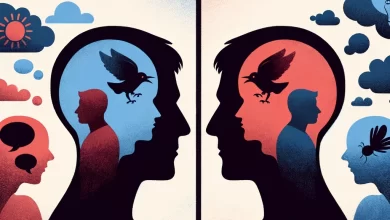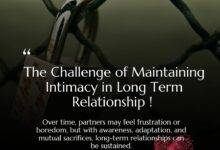Finding Love After Divorce: Hope & Healing

Did you know that approximately 40-50% of marriages in the United States end in divorce? This startling statistic highlights the significant number of individuals who are faced with the challenge of rebuilding their lives and finding love again after the breakdown of a marriage.
Recovering from the trauma of a broken marriage takes time and support, but most people are hopeful that they can find love again after divorce. There are several stages in the healing process, starting with the initial stages of loss and bereavement. Healing the heart after divorce is just as important as healing a broken arm or leg. Trauma can also be a part of the divorce experience, particularly if the breakup was unkind or abrupt. Overcoming negative beliefs and feelings of victimhood is key to finding love again.
Key Takeaways:
- Approximately 40-50% of marriages in the United States end in divorce.
- Healing the heart after divorce is crucial for finding love again.
- Trauma and negative beliefs can hinder the process of moving on after divorce.
- Overcoming victimhood is essential in finding love and happiness after divorce.
- Recovering from a broken marriage is a journey that requires time and support.
The Psychology of Breakup and Divorce
Understanding the psychology behind breakup and divorce is essential for individuals navigating the challenging journey of healing and moving on. Agnieszka Burban, a renowned Cognitive Behavioural Therapist, has extensively researched the emotional intricacies that accompany the end of a marriage.
Burban explains that the healing process of divorce involves various emotional stages, including loss and bereavement. These emotions, akin to those experienced when facing the passing of a loved one, can be overwhelming and require time for proper processing.
“The emotional stages of divorce range from shock and denial to anger, sadness, and eventually acceptance,” says Burban. “It is crucial to acknowledge and express these feelings, as repressing them can hinder the healing process.”
In addition to the immediate emotional impact, divorce can trigger negative beliefs rooted in childhood experiences. These beliefs can resurface during a traumatic breakup, compounding feelings of insecurity and self-doubt.
To find love again after divorce, it is important to address these ingrained beliefs and heal from them. Self-reflection and therapy can help individuals challenge and replace negative thoughts with positive affirmations, rebuilding self-esteem and opening up to new possibilities.
Addressing Negative Beliefs and Finding Healing
Overcoming negative beliefs after divorce involves a combination of self-reflection, therapy, and mindfulness. By recognizing and challenging these beliefs, individuals can break free from the shackles of self-sabotage and truly open their hearts to love again.
In her therapy sessions, Burban guides individuals through a process of self-discovery, helping them uncover their negative beliefs and understand the experiences that shaped them. This journey of introspection is an integral part of the healing process.
Once these negative beliefs are identified, cognitive restructuring techniques are employed to reframe them in a positive light. This helps create a new narrative, fostering self-compassion, resilience, and a renewed sense of self-worth.
Through the psychology of breakup and divorce, individuals can gain a deeper understanding of their emotions, address negative beliefs, and embark on a journey of healing and self-discovery. By embracing this process, they can find love again and create fulfilling relationships that honor their growth and newfound resilience.
The Process of Healing and Moving On
When it comes to healing after a divorce, the journey is unique for each person. One highly effective method for navigating this process is through a concept called conscious uncoupling. Developed by Katherine Woodward Thomas, conscious uncoupling provides a structured five-week program to help individuals detach from their previous relationship and readjust to single life.
Conscious uncoupling focuses on personal growth and reflection, allowing individuals to acknowledge what the relationship brought to them and look forward to new opportunities post-divorce. This process is designed to be a gentle and compassionate way of moving on, emphasizing self-care and self-discovery. By embracing conscious uncoupling, individuals can begin their healing journey and open themselves up to a brighter future.
During the five-week program, participants engage in various activities and exercises that promote healing after divorce. Through journaling, meditation, and self-reflection, individuals are encouraged to explore their emotions, gain clarity on their desires, and develop a deeper understanding of themselves. This self-awareness is crucial for personal growth and creating a strong foundation for moving forward.
Conscious uncoupling also provides a supportive community of individuals who are going through similar experiences. This sense of belonging and shared understanding can be incredibly healing, as it reminds participants that they are not alone in their journey. Through group discussions and peer support, individuals can find comfort, validation, and encouragement as they navigate the complexities of divorce.
The Benefits of Conscious Uncoupling
Conscious uncoupling offers several benefits for individuals seeking healing after divorce. By engaging in this process, individuals can:
- Gain clarity and closure on the end of their previous relationship.
- Identify and address any negative patterns or beliefs that may have contributed to the divorce.
- Develop self-compassion and self-love, fostering a stronger sense of self-worth.
- Learn valuable tools for communication and conflict resolution, improving future relationships.
- Create a positive vision for their future and set empowering goals.
By actively participating in the conscious uncoupling process, individuals can lay the groundwork for a healthier and more fulfilling life after divorce. It is an opportunity for personal growth, self-discovery, and empowerment.
Overcoming Difficult Emotions and Self-Reflection
Divorce can bring forth a wide range of difficult emotions, such as anger, resentment, and hurt. These emotions are natural responses to the end of a significant relationship, and it is important to acknowledge and address them for the healing process to take place.
Dealing with these difficult emotions requires self-reflection, which involves taking an honest look at oneself and understanding one’s role in the outcome of the relationship. Self-reflection allows individuals to examine their patterns and behaviors that may have contributed to the divorce and helps them grow and form healthier relationships in the future.
Self-reflection is not about blaming oneself but rather gaining insights and personal growth. It is a process of understanding how our thoughts, actions, and choices impact our relationships. Through self-reflection, we can identify areas for improvement and make positive changes in our lives.
By engaging in self-reflection, individuals can gain a deeper understanding of their emotions and reactions, which can lead to better coping strategies. It allows them to identify triggers and develop healthier ways of dealing with difficult emotions.
It is also important to seek support during this process. Talking to a therapist or joining a divorce support group can provide a safe space to express emotions and receive guidance on navigating the challenges of divorce.
Practicing self-care
Self-care plays a crucial role in overcoming difficult emotions and promoting self-reflection. Taking care of oneself physically, mentally, and emotionally can help individuals cope with the stress and emotional toll of divorce.
This can involve engaging in activities that bring joy and relaxation, such as exercise, meditation, spending time with loved ones, or pursuing hobbies. It is also essential to prioritize self-care by setting boundaries, saying no to excessive demands, and making time for oneself.
Self-reflection and self-care go hand in hand, as self-reflection helps individuals identify their needs and prioritize self-care activities that promote healing and personal growth.
Journaling for self-reflection
Journaling is a powerful tool that can aid in the process of self-reflection. By writing down thoughts, feelings, and experiences, individuals can gain clarity and deeper insights into their emotions and behaviors.
Writing in a journal can provide a sense of release and help process difficult emotions. It allows individuals to track progress, identify patterns, and set goals for personal growth. Regular journaling can also serve as a valuable record of one’s healing journey.
Seeking professional help
While self-reflection is an important aspect of the healing process, it may not be enough for everyone. Seeking professional help from a therapist or counselor can offer guidance and support in navigating the complexities of divorce.
A trained professional can provide a safe and non-judgmental space to explore difficult emotions, gain insights into patterns and behaviors, and develop effective coping strategies. They can also help individuals develop a healthier relationship with themselves and others, paving the way for new and fulfilling connections in the future.
Dealing with difficult emotions and engaging in self-reflection after divorce takes time and effort. It is a process of growth, healing, and self-discovery. By acknowledging and addressing these emotions, individuals can emerge stronger and more resilient, ready to embrace a brighter future.
Finding Love Again: Trusting Yourself and Putting Yourself First
After a divorce, it is completely normal to have doubts and question whether finding love again is possible. The lingering pain and emotional turmoil can make it challenging to envision a future filled with love and happiness. However, the key to opening your heart to new possibilities lies in trusting yourself and believing that you are deserving of love, even after such a devastating loss.
Trusting yourself after divorce involves recognizing your own worth and understanding that your past does not define your future. It means acknowledging the strength and resilience that got you through the difficult process of separation and recognizing the lessons you have learned along the way. By trusting yourself, you regain control of your life and the choices you make, including the decision to seek love once again.
Putting yourself first is crucial as you embark on the journey of finding love again. Taking the time to heal and grow is not only essential for your own well-being but also for attracting a healthy and loving relationship. It is an opportunity to prioritize your own happiness and nurture a positive self-image. By focusing on self-care, personal growth, and pursuing activities that bring you joy, you become a magnet for positivity and attract the love you deserve.
Quotes:
“Trusting yourself and believing that you are worthy of love is the first step towards finding it again.” – Dr. Maya Johnson
“Putting yourself first doesn’t mean being selfish; it means recognizing your own value and making choices that align with your happiness.” – Relationship Coach, Sarah Peterson
The Journey of Self-Discovery:
Finding love again after divorce is a transformative journey of self-discovery. It provides an opportunity for self-reflection, introspection, and personal growth. By taking the time to heal, rebuild your confidence, and nurture your own happiness, you create a solid foundation for a future relationship.
Remember that finding love should not be a rushed or forced process. It is essential to trust the timing of your life and allow love to naturally unfold. Embrace the lessons learned from your previous relationship, but do not let them define your future. Allow yourself to be vulnerable, open, and receptive to new experiences and connections.
| Putting Yourself First in Finding Love Again: | Trusting Yourself After Divorce: |
|---|---|
| Focus on self-care and personal growth | Believe in your own worth and value |
| Nurture a positive self-image | Embrace the lessons learned |
| Set boundaries and prioritize your happiness | Recognize your own strength and resilience |
By following these principles and embracing a mindset of self-love, you will not only find love again but also build a strong and fulfilling relationship based on trust, respect, and mutual understanding.

Dating and the Journey to Love
Dating after divorce can be both challenging and exciting. It marks a new chapter in your life, offering second chances at love and the opportunity for a fresh start. As you embark on this journey to finding love, it is essential to approach dating with openness, honesty, and self-awareness.
Embracing this journey involves being vulnerable and authentic, both with yourself and potential partners. Allow yourself to let go of any baggage from your previous relationship and open your heart to new possibilities. Remember, each date is an opportunity to learn, grow, and discover what you truly desire in a partner.
Setting boundaries is crucial during this phase. Take the time to reflect on your needs and values, and communicate them clearly to your date. Establishing healthy boundaries ensures that you are respected and that your emotional well-being is prioritized throughout the dating process.
“Dating after divorce is your chance to redefine love on your own terms. Embrace the journey, embrace self-discovery, and trust that love will find its way to you.”
Learning from past experiences is also invaluable as you navigate the dating landscape. Take the time to reflect on your previous relationship and identify any patterns or behaviors that may have contributed to its end. This self-reflection will empower you to make healthier choices and foster more fulfilling connections in the future.
The journey to finding love after divorce is not without its uncertainties, but it is during these moments of vulnerability that growth occurs. Embrace the unknown, trust the process, and believe that you deserve love and happiness.
Tips for Successful Post-Divorce Dating:
- Take your time and don’t rush into a new relationship.
- Be open-minded and willing to step out of your comfort zone.
- Focus on self-care and nurturing your own happiness.
- Communicate honestly and openly with potential partners.
- Utilize online dating platforms and social events to expand your dating pool.
- Seek support from friends, family, or therapists if you need additional guidance.
| Benefits of Post-Divorce Dating | Challenges of Post-Divorce Dating |
|---|---|
| + Opportunity to rediscover yourself | – Fear of getting hurt again |
| + Building new connections and friendships | – Uncertainty about navigating the dating scene |
| + Learning from past mistakes | – Balancing dating with other responsibilities |
| + Increased self-confidence | – Dealing with baggage from previous relationships |
Remember, dating after divorce is an opportunity for personal growth, self-discovery, and building a future filled with love and happiness. Embrace the journey, be patient, and trust that the right person will come along when the time is right.
A Personal Experience of Finding Love Again
When it comes to finding love after divorce, there is no one-size-fits-all approach. Each person’s experience is unique and deeply personal. Personal experiences are invaluable in providing insights and inspiration to those who are on their own journey toward love and happiness.
After my own painful divorce, I embarked on a journey of self-discovery and healing. It was during this time that I learned valuable lessons about finding love after divorce and the possibility of remarriage after divorce.
One of the most important aspects of my journey was the realization that openness and honesty are foundational in building a healthy and fulfilling relationship. I had to let go of any fears or reservations from my past and embrace the vulnerability of opening my heart to love again. It was through this process that I discovered the immense joy of experiencing love after a painful breakup.
“Love has a way of finding us when we least expect it. It was when I stopped searching for love that it found me, and it was more beautiful than I could have ever imagined.”
While finding love again after divorce brought happiness and fulfillment, it also came with its own set of challenges. I had to confront and overcome deep-rooted fears and insecurities that had arisen from my previous marriage. This required inner strength, self-reflection, and a commitment to personal growth.
Through the challenges and growth I experienced, I discovered that finding love again after divorce is not simply about finding someone new—it’s about finding yourself, understanding your needs and boundaries, and obtaining complete self-acceptance and self-love.
Rekindling the Flame: A Second Chance at Love
Remarriage after divorce is often seen as a second chance at love—an opportunity to create a new chapter in life. It is essential to approach this journey with patience, understanding, and a willingness to learn from past experiences. By acknowledging the emotions and fears that may arise, we can navigate the challenges with grace and optimism.
My personal experience of finding love again after divorce has taught me that love is possible even after heartbreak. It is a testament to the human spirit’s resilience and capacity for growth. Through self-reflection, healing, and a commitment to personal well-being, we can emerge from the darkness of divorce into a future filled with love and happiness.
Remember, finding love after divorce is not only about discovering a new partner—it’s about rediscovering yourself, embracing your worthiness, and opening your heart to the possibility of a brighter future.
“In the end, love always finds a way to be reborn. Embrace your personal journey, trust in the process, and have faith that love will find its way back to you.”

The Challenges of Post-Divorce Dating and Remarriage
Post-divorce dating can be both exciting and daunting. After the emotional journey of divorce, the prospect of starting over and finding love again may feel overwhelming. There are various challenges that individuals may encounter as they navigate the world of dating after divorce.
Emotions After Divorce
During the post-divorce phase, individuals may experience a range of emotions. It is natural to feel a mix of excitement, anxiety, and fear. The fear of being hurt again or the fear of making the same mistakes can be particularly daunting. It is important to acknowledge and address these emotions in order to move forward and embrace new relationships.
“Emotional healing is a crucial part of the post-divorce journey. Taking the time to process your emotions and seek support when needed can help you navigate the challenges of dating and remarriage.”
Fears of Remarriage
Remarrying after divorce can bring up a unique set of fears and uncertainties. Some individuals may worry about repeating past mistakes or entering into another unsuccessful marriage. Trusting oneself and having confidence in the decision to remarry is essential. It is crucial to take the time to reflect on personal growth and ensure that the next relationship is based on a strong foundation.
Challenges of Post-Divorce Dating
Dating after divorce can present its fair share of challenges. From building trust with a new partner to navigating blended families and parenting responsibilities, there may be obstacles to overcome. It is important to have patience, understanding, and open communication with your partner. Taking the time to establish a strong connection and addressing any issues that arise can lead to a healthy and fulfilling relationship.
Remember, post-divorce dating and remarriage are journeys that require self-reflection, growth, and a willingness to explore new possibilities. With the right mindset and support, it is possible to find love again and create a fulfilling future.
Conclusion
Finding love again after divorce is an empowering journey that offers immense happiness and fulfillment. It is a process of healing, self-reflection, and personal growth. By addressing emotions, overcoming negative beliefs, and prioritizing self-care, individuals can create a new chapter filled with love and discover second chances at love.
Throughout this article, we have explored the stages of healing after divorce, the importance of self-reflection, and the challenges of post-divorce dating. We have learned that healing is possible, and with the right mindset and determination, love can be found again.
If you are seeking guidance and support in your journey, consider exploring resources that provide valuable insights and advice on life after divorce. Remember, you deserve love and happiness, and your past does not define your future. Embrace the opportunity to create a new story and find love again. Good luck!






